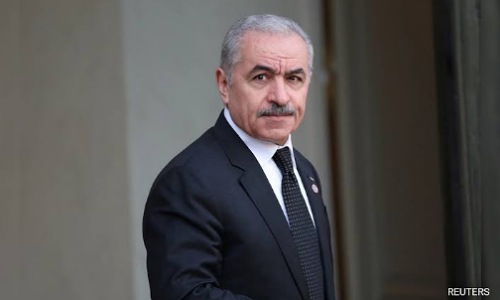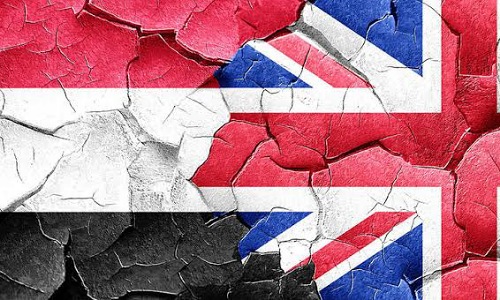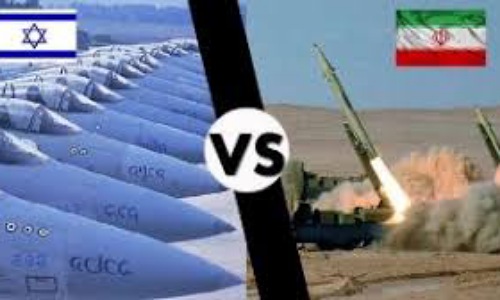International News
Gaza War: Palestinian Prime Minister Steps Down

Palestinian Prime Minister, Mohammad Shtayyeh has announced the resignation of his government ruling parts of the Israeli-occupied West Bank on Monday.
The decision, attributed to the need for change after the Israel-Hamas war in Gaza, was submitted to Palestinian Authority President Mahmud Abbas, who accepted it.
The move aligns with calls from the United States and other powers for a reformed Palestinian Authority to oversee all territories post the conflict sparked by Hamas’s October 7 attack.
Shtayyeh cited developments related to the aggression against the Gaza Strip and the escalation in the West Bank and Jerusalem as reasons for the resignation.
Shtayyeh revealed that he had initially presented his resignation to President Mahmud Abbas last Tuesday, emphasizing that he officially submitted it “in writing” on Monday.
In concise remarks, the 66-year-old Shtayyeh emphasized that “the next stage and its challenges require new governmental and political measures that take into account the new reality in the Gaza Strip.”
He advocated for intra-Palestinian consensus and urged for the “extension of the Authority’s rule over the entire land of Palestine.”
Responding to the resignation, President Abbas issued a decree accepting it and entrusted Shtayyeh’s government to continue “temporarily until a new government is formed,” as stated in a release from the presidency.
Israel has firmly rejected any prospective political role for the Islamist movement Hamas in Gaza.
However, it has suggested the possibility of local Palestinian officials playing a role in the region.
President Abbas, 88, faces widespread unpopularity in the West Bank, with mounting anger since the Gaza war commenced on October 7.
Criticism revolves around his perceived failure to strongly condemn the Israeli offensive in Gaza and address the escalating violence in the West Bank.
According to Khalil Shikaki from the Palestinian Centre for Policy and Survey Research, a think tank, Abbas has been criticized for failing to protect his own people.
Shikaki pointed out, “Now he wants to be present for the day after, but he didn’t do anything during the war. Most Palestinians are harsher than I am. Abbas is going to have a government that is loyal to him. He is a one man show.
On the streets of Ramallah, Palestinians express skepticism about the potential government change.
Basil Farraj highlights the Palestinian Authority’s shortcomings, citing corruption, lack of security, and suppression of freedom and resistance as contributing factors.
Another resident, Rula Abu Daho, asserts, “Whether the government changes or not, it is appointed by American and occupation decisions,” alluding to Israel.
The divide between the Palestinian Authority in the West Bank and Hamas in the Gaza Strip has persisted since 2007, creating a complex political landscape.
The Gaza war erupted after Hamas militants attacked southern Israel on October 7, resulting in approximately 1,160 deaths, mostly civilians, according to an AFP tally based on Israeli figures.
The retaliatory Israeli military offensive in Gaza has claimed at least 29,782 lives, with the majority being women and children, as reported by the territory’s health ministry.
Throughout the conflict, violence in the West Bank surged to levels not seen in nearly two decades. Israeli troops and settlers have been responsible for the deaths of at least 400 Palestinians in the West Bank since the Gaza war began, according to the health ministry in Ramallah.
There are indications that Mohammed Mustafa, an executive committee member of the Palestine Liberation Organisation dominated by the ruling Fatah movement, might be named to head the new cabinet, according to Palestinian media reports.
Mohammed Mustafa, who has previously served as deputy prime minister and a senior adviser to Abbas on economic affairs, emerges as a potential candidate for heading the new cabinet.
International mediators are actively engaged in discussions for a ceasefire in Gaza, and Washington, as Israel’s top ally, is exploring potential governance structures for post-war Gaza.
Palestinian analyst Ghassan Khatib sees Abbas’s resignation as a demonstration of flexibility, signaling readiness for a government of technocrats that could operate in both the West Bank and the Gaza Strip post-war.
Khatib suggests that if Abbas and Hamas can reach an agreement, it would mark a significant and new phase in the internal political scene.
Prime Minister Shtayyeh defended his record, highlighting that despite significant challenges, his government managed to fulfill its responsibilities.
Speaking about the achievements during his tenure that began in 2019, he stated, “The government was able to achieve a balance between meeting the needs of our people and providing services like infrastructure.”
Shtayyeh expressed determination, affirming, “We will continue to struggle to establish a state on the lands of Palestine.”
International News
I Won’t Resign, Says Spain’s PM
Prime Minister Pedro Sanchez of Spain has officially announced that he will not be resigning, bringing an end to a period of intense political speculation.
His declaration, made during a public address on Monday, follows days of uncertainty surrounding his tenure.
Earlier reports had hinted at Sanchez’s potential resignation amidst ongoing investigations into his wife, Begona Gomez’s alleged involvement in influence peddling and corruption.
However, Sanchez clarified that his contemplation of resignation was not driven by political strategy but rather by concerns over growing polarization and the dissemination of deliberate misinformation within the political landscape.
Sanchez passionately addressed the need to combat the degradation of public discourse, stating, “For too long, we’ve allowed toxic methods to corrupt our political and public life, methods that were unthinkable just a few years ago… Do we truly desire this for Spain?”
He emphasized his conviction, declaring, “I have acted with a clear determination: either we declare ‘enough is enough’ or allow this deterioration of public life to shape our future and condemn our nation.”
Sanchez’s choice to remain in office was significantly influenced by a strong demonstration of support at the Socialist Party’s headquarters in Madrid, where enthusiastic supporters passionately chanted, “Pedro, stay!” This outpouring of solidarity occurred shortly after the public prosecutor’s office recommended closing the investigation into Gomez.
Sanchez’s reaffirmation of his leadership role comes at a pivotal juncture as he gears up to guide his party through the upcoming regional elections in Catalonia on May 12.
The Socialists are poised to contest against the pro-independence factions currently holding sway, underscoring the significance of his continued leadership.
International News
UK Imposes Sanctions On Businesses Linked To Sudan Conflict

Britain has taken a decisive stance against the escalating conflict in Sudan by announcing sanctions targeting businesses associated with the warring factions.
Since the outbreak of fighting between rival generals on April 15 last year, the situation has deteriorated drastically, resulting in thousands of casualties and forcing approximately 1.8 million people to seek refuge in neighboring countries.
Aid workers on the ground have painted a grim picture of the humanitarian catastrophe unfolding in the country, with civilians enduring starvation, sexual violence, ethnic killings, and executions.
The UK’s Foreign Office has underscored the severity of the situation, emphasizing that “strict measures” will be implemented, including asset freezes on companies with ties to the Sudanese Armed Forces (SAF) and its rival, the paramilitary Rapid Support Forces (RSF).
British foreign minister David CameronCameron said “We continue to see appalling atrocities against civilians, unacceptable restrictions on humanitarian access and an utter disregard for civilian life.
“The businesses that support the warring parties must be held to account, alongside those responsible for human rights abuses. The world must not forget about Sudan. We urgently need to end the violence.
The sanctions target specific entities, including Alkhaleej Bank, implicated in financing the RSF, and Al-Fakher Advanced Works, a holding company facilitating gold exports for the organization, with proceeds funnelled into weapons acquisition.
Additionally, Red Rock Mining, known for providing funds to the SAF, faces sanctions. The company’s close ties to Defence Industries System, the economic and manufacturing arm of the SAF, further solidify its inclusion in the sanctions, as stated by the Foreign Office.
France, currently hosting an international conference on Sudan, is urging for aid contributions and heightened global attention to address what officials describe as a crisis overshadowed by ongoing conflicts in Ukraine and Gaza.
Will Carter, Sudan country director for the Norwegian Refugee Council, emphasized the dire conditions faced by civilians in the region, including starvation, widespread sexual violence, ethnic massacres, and executions.
According to the UN, over 8.5 million people have been displaced since the onset of the conflict.
The World Health Organization has issued warnings about the country’s collapsing health system, citing acute shortages of medical staff and essential medicines as pressing concerns.
International News
JUST IN: Iran Summons 3 European Ambassadors Over Israel Attack

In response to what it perceives as undue criticism from officials in France, Britain, and Germany, Iran summoned their respective ambassadors to Tehran on Sunday.
The move comes in the wake of Iran’s recent missile and drone strike on Israel.
According to the official IRNA news agency, the Iranian Ministry of Foreign Affairs cited “irresponsible positions” from certain officials in these countries regarding Iran’s retaliation against perceived Israeli provocations impacting Iranian citizens and interests.
The Agency said, “The British, French, and German ambassadors to Tehran were summoned to the Ministry of Foreign Affairs following the irresponsible positions of certain officials of these countries regarding Iran’s response to the actions of the Zionist regime (Israel) against the nationals and interests of our country.”
More to follow…….







